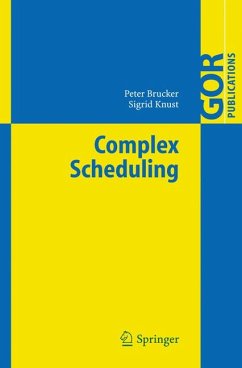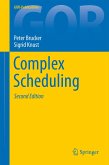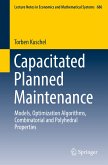Scheduling problems have been investigated since the late ?fties. Two types of applications have mainly motivated research in this area: project planning and machine scheduling. While in machine scheduling a large number of speci?c scheduling situations depending on the machine environment and the job c- racteristicshavebeenconsidered, theearlyworkinprojectplanninginvestigated scheduling situations with precedence constraints between activities assuming that su?cient resources are available to perform the activities. More recently, in project scheduling scarce resources have been taken into account leading to so-called resource-constrained project scheduling problems. On the other hand, also in machine scheduling more general and complex problems have been - vestigated. Due to these developments today both areas are much closer to each other. Furthermore, applications like timetabling, rostering or industrial scheduling are connected to both areas. This book deals with such complex scheduling problems and methods to solve them. It consists of three parts: The ?rst part (Chapters 1 and 2) contains a description of basic scheduling models with applications and an introduction into discrete optimization (covering complexity, shortest path algorithms, linear programming, network ?ow algorithms and general optimization methods). In the second part (Chapter 3) resource-constrained project scheduling problems are considered. Especially, methods like constraint propagation, branch-a- bound algorithms and heuristic procedures are described. Furthermore, lower bounds and general objective functions are discussed.
Dieser Download kann aus rechtlichen Gründen nur mit Rechnungsadresse in A, B, BG, CY, CZ, D, DK, EW, E, FIN, F, GR, HR, H, IRL, I, LT, L, LR, M, NL, PL, P, R, S, SLO, SK ausgeliefert werden.









